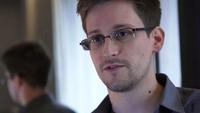-
U.S. tech companies could go “dark” to regain trust
With each new revelation of the scope of the American National Security Agency’s spying, perceptions of the importance of privacy are hardening around the world. There is thus a motivation for major technology companies to provide a verifiably secure means of allowing users to communicate securely without an ability for the companies to provide access to security agencies, even if requested to. Two companies, Silent Circle and Lavabit, have come together to form the Dark Mail alliance in an attempt to do exactly this.
-
-
Lawmakers want better security clearance process
The Senate Homeland Security and Governmental Affairs Committee(HSGAC) held a hearing last week to review security clearance procedures in light of Edward Snowden’s leaks and the Washington Navy Yard assault in which contractor Aaron Alexis shot and killed twelve people. Members of various federal agencies involved in issuing security clearances testified about their initiatives to improve the security clearance process, but legislators pushed for concrete plans and changes to the current system.
-
-
Senate panel’s NSA curbs not enough: critics
Yesterday, the Senate’s intelligence committee approved by an 11-4, and released the text of, a bill which would scale back the NSA’s bulk collection of Americans’ telephone records, increase congressional and judicial oversight of intelligence activities, and create 10-year prison sentences for people who access the classified material without authorization. Critics of U.S. surveillance programs and privacy rights advocates said the bill does little, if anything, to end the daily collection of millions of records that has spurred widespread demands for reform.
-
-
White House to curb NSA monitoring of some allies' leaders
It appears that President Obama will soon instruct the NSA to stop eavesdropping on leaders of close U.S. allies. It now emerges that both the president and Congress’s intelligence committees were kept in the dark about this aspect of the NSA surveillance program. Yesterday’s indication by the White House that it moving toward banning the NSA from eavesdropping on some foreign leaders is a historic change in the practices of an agency which has enjoyed unlimited and unfettered – and, it now appears, unsupervised – freedom of action outside the borders of the United States. The move is similar to, if more complicated than, the limits imposed on the CIA in the mid-1970s. Security experts note, though, that prohibiting the NSA from eavesdropping on some foreign leaders would be more complicated and potentially more damaging to U.S. interests than the prohibitions imposed on the CIA more than three decades ago.
-
-
U.S. “black budget” reveals unwieldy bureaucracy, misplaced priorities: expert
Classified budget figures and successes and failures by American intelligence agencies, exposed for the first time this week by the Washington Post, show a massive bureaucracy with misplaced priorities, according to a cybersecurity and privacy expert. “The major failure identified in all of the post-9/11 assessments was a ‘failure to connect the dots,’” the expert said. “Nevertheless, the vast majority of the black budget is being spent on data acquisition — collecting more dots — rather than analysis.”
-
-
NSA broke UN video-conferencing encryption, eavesdropped on deliberations

The National Security Agency (NSA) in 2012 broke the encryption which secured the UN internal video conferencing at the organization’s headquarters in New York. Among other things, the NSA discovered that the Chinese secret service was also eavesdropping on the UN.
-
-
Russia grants Snowden a 1-year temporary refugee status
Edward Snowden has left Moscow’s Sheremetyevo airport and has entered Russia after he had been granted temporary asylum – the official language: a temporary refugee status — for one year. It is not yet known whether Snowden’s plan is to stay in Russia permanently, or whether he will try to move on to one of the four Latin American countries — Venezuela, Bolivia, Nicaragua, and Ecuador – which last month had offered him asylum. U.S. lawmakers said Russia’s decision had damaged U.S.-Russian relations, and the White House hinted that President Obama may cancel a planned summit meeting with Putin in Moscow in September.
-
-
Manning found guilty of violating the Espionage Act, acquitted of aiding the enemy (updated)

A military judge earlier this afternoon (Tuesday) found Private Manning Pfc. Bradley Manning guilty of more than twenty counts of violating the Espionage Act. The judge, Army Col. Denise Lind, found Manning not guilty of aiding the enemy. Manning admitted to being to source of the massive leaks of U.S. government documents and videos, leaks which came to be called WikiLeaks. In all, Manning has leaked more than 700,000 documents. The sentencing phase will begin Wednesday. The conviction for violating several aspects of the Espionage Act, and for stealing government property, could lead to punishment of up to 136 years in prison.
-
-
Manning found guilty of violating the Espionage Act, acquitted of aiding the enemy
A military judge earlier this afternoon (Tuesday) found Private Manning Pfc. Bradley Manning guilty of more than twenty counts of violating the Espionage Act. The judge, Army Col. Denise Lind, found Manning not guilty of aiding the enemy. Manning admitted to being to source of the massive leaks of U.S. government documents and videos, leaks which came to be called WikiLeaks. In all, Manning has leaked more than 700,000 documents. The sentencing phase will begin Wednesday. Violating several aspects of the Espionage Act could lead to punishment of up to 100 years in prison.
-
-
U.S. research universities subject to sustained cyberattack campaign by China
Leading U.S. research universities report that they have been subject to millions of Chinese hacking attempts weekly. The Chinese are aware that universities, and the professors who do research under the schools’ auspices, receive thousands of patents each year in areas such as prescription drugs, computer chips, fuel cells, aircraft, medical devices, food production, and more. The Chinese government-sponsored cyberattacks on American research universities are an expansion of efforts by China to steal information that has commercial, political, or national security value.
-
-
Consolidation expected among large cybersecurrity contractors
Europe’s largest defense company, BAE Systems, says the number of military contractors selling data protection services to governments will decrease as clients demands for ever-more-sophisticated products increase.
-
-
U.S., China begin formal cybersecurity talks
U.S. and Chinese officials have begun a week of formal discussions on cybersecurity. A bi-lateral group held its first meeting Monday at the State Department with both civilians and military officials included in the talks.
-
-
Documents show NSA conducted surveillance of EU member states, embassies (updated)

European politicians issued indignant warnings Sunday to the United States that U.S.-European relations may suffer as a result of revelations that the National Security Agency (NSA) spied on European governments and their embassies in Washington, and on European Union (EU) offices. The revelations were contained in documents, dated 2010, which Edward Snowden took from Booz Allen. Observers note that the revelations are not exactly news, since it has always been assumed that the United States spies on the activities of foreign diplomats – even those representing allies — in the United States. It has also been assumed that the United States was conducting surveillance of major countries and international institutions. Moreover, at least seven European Union member states – the United Kingdom, Denmark, the Netherlands, France, Germany, Spain, and Italy — have formal agreements with the United States to provide communications metadata to the NSA. “There’s a certain schadenfreude here [in Europe] that we’re important enough to be spied on,” a senior European official said. “This was bound to come out one day. And I wouldn’t be surprised if some of our member states were not doing the same to the Americans.”
-
-
Documents show NSA conducted surveillance of EU member states, embassies
European politicians issued indignant warnings Sunday to the United States that U.S.-European relations may suffer as a result of revelations that the National Security Agency (NSA) spied on European governments and their embassies in Washington, and on European Union (EU) offices. The revelations were contained in documents, dated 2010, which Edward Snowden took from Booz Allen. Observers note that the revelations are not exactly news, since it has always been assumed that the United States spies on the activities of foreign diplomats – even those representing allies — in the United States. It has also been assumed that the United States was conducting surveillance of major countries and international institutions. Moreover, at least seven European Union member states – the United Kingdom, Denmark, the Netherlands, France, Germany, Spain, and Italy — have formal agreements with the United States to provide communications metadata to the NSA. “There’s a certain schadenfreude here [in Europe] that we’re important enough to be spied on,” a senior European official said. “This was bound to come out one day. And I wouldn’t be surprised if some of our member states were not doing the same to the Americans.”
-
-
Background check of Snowden may have been faulty
The Inspector General of the Office of Personnel Management (OPM) told lawmakers that a 2011 security reinvestigation of Edward Snowden’s background, conducted by a government contractor, may have been faulty. Later in 2011, OPM began investigating the contractor — USIS — for contract fraud. That investigation is still ongoing. The IG told the lawmakers that eighteen background investigators and record searchers — eleven federal employees and seven contractors — have so far been convicted for falsifying background investigation reports. Their abuses included interviews that never occurred, answers to questions that were never asked, and record checks that were never conducted, the IG said.
-
- All
- Regional
- Water
- Biometrics
- Borders/Immig
- Business
- Cybersecurity
- Detection
- Disasters
- Government
- Infrastructure
- International
- Public health
- Public Safety
- Communication interoperabillity
- Emergency services
- Emergency medical services
- Fire
- First response
- IEDs
- Law Enforcement
- Law Enforcement Technology
- Military technology
- Nonlethal weapons
- Nuclear weapons
- Personal protection equipment
- Police
- Notification /alert systems
- Situational awareness
- Weapons systems
- Sci-Tech
- Sector Reports
- Surveillance
- Transportation
Advertising & Marketing: advertise@newswirepubs.com
Editorial: editor@newswirepubs.com
General: info@newswirepubs.com
2010-2011 © News Wire Publications, LLC News Wire Publications, LLC
220 Old Country Road | Suite 200 | Mineola | New York | 11501
Permissions and Policies
Editorial: editor@newswirepubs.com
General: info@newswirepubs.com
2010-2011 © News Wire Publications, LLC News Wire Publications, LLC
220 Old Country Road | Suite 200 | Mineola | New York | 11501
Permissions and Policies
